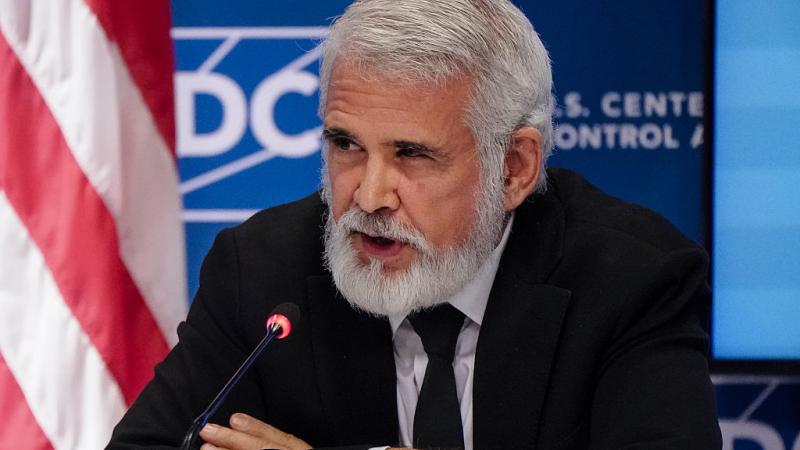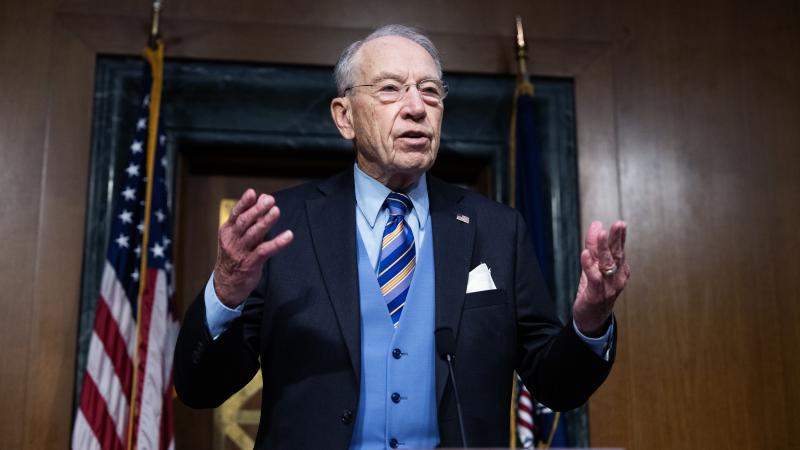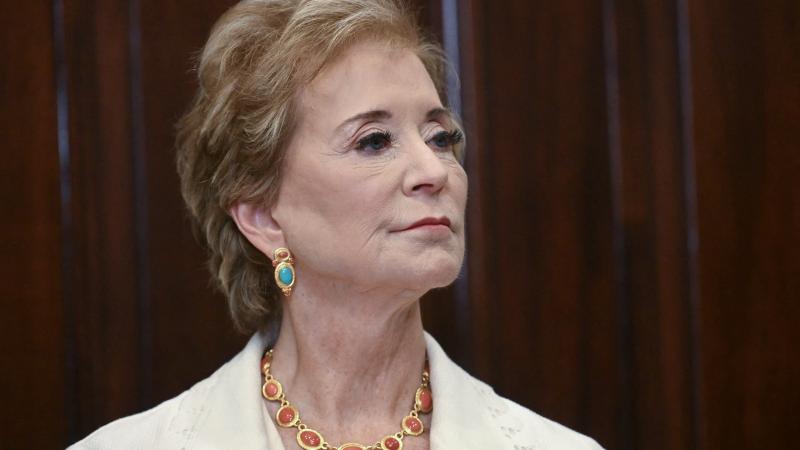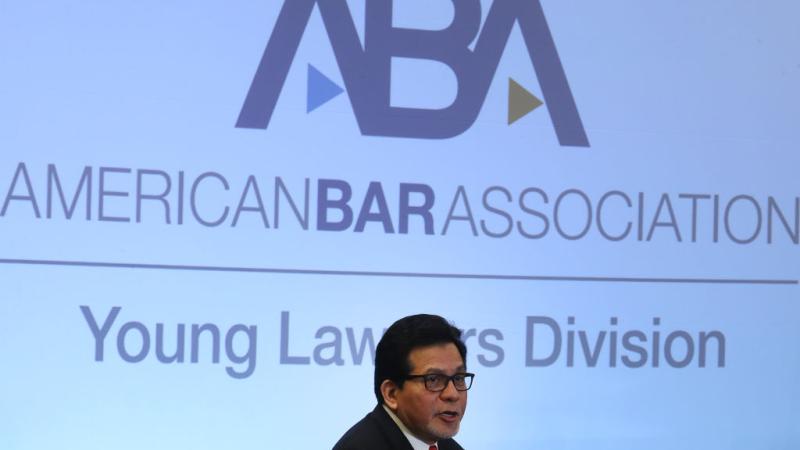Will Chief Justice Roberts do anything about Judge Boasberg?
The initial push for impeachment came in March, after Boasberg issued a nationwide order temporarily blocking the Trump administration from using the Alien Enemies Act to deport alleged members of Tren de Aragua.
Calls for the impeachment of James E. Boasberg, the chief judge of the U.S. District Court for the District of Columbia, have intensified throughout this year.
What began as a partisan reaction to a single ruling has morphed into a broader debate about judicial ethics, political influence and the role of federal courts. The question now is whether Chief Justice John Roberts will act.
The initial push for impeachment came in March, after Judge Boasberg issued an order temporarily blocking the Trump administration from using the Alien Enemies Act to deport purported members of Tren de Aragua, a Venezuelan gang designated as a foreign terrorist organization.
President Trump responded sharply on social media, calling Boasberg a “Radical Left Lunatic,” and posting on X that the judge “should be IMPEACHED!!!”
The First Wave of Impeachment Calls
That same day, Texas GOP Rep. Brandon Gill and five co-sponsors introduced articles of impeachment alleging Boasberg used “his judicial position to advance political gain” and obstructed “the President’s constitutional prerogatives.” The proposal drew some division within the Republican Party. Sen. John Kennedy, R.-La., called the proposal “idiotic,” and Sen. John Cornyn, R.-Texas said, “You don’t impeach judges who make decisions you disagree with.”
The uproar also prompted a rare public statement from Chief Justice John Roberts: “For more than two centuries, it has been established that impeachment is not an appropriate response to disagreement concerning a judicial decision. The normal appellate review process exists for that purpose.”
Gill’s resolution was referred to the House Judiciary Committee in March, but it was not brought to the floor. Shortly thereafter, the Supreme Court handed the Trump administration a major win by vacating Boasberg’s order. The Court explained that the challenge to Trump’s use of the Alien Enemies Act did not belong in Boasberg’s court. “The detainees are confined in Texas, so venue is improper in the District of Columbia,” the ruling stated.
Boasberg’s Off-Bench Conduct Draws Scrutiny
Impeachment pressure intensified after Just the News reported that months before his Alien Enemies Act ruling, Boasberg traveled to Idaho to attend a privately-funded Rodel Institute legal conference. The conference’s sponsors and speakers had publicly criticized Trump on immigration and January 6, and one of the conference sessions was titled “Role of Judges in a Democracy.”
Critics argued that Boasberg’s attendance created at least the appearance of bias. Harvard Law Professor Emeritus Alan Dershowitz said on the John Solomon Reports podcast that Boasberg’s attendance at the Rodel Institute conference was “a creation of, obviously, a conflict of interest, at least in appearance” and that “when you have cases like this, you have to be absolutely above reproach.”
In an interview on Just the News, No Noise, Rep. Andy Biggs, R-Ariz., said that Congress should consider banning privately funded judicial conferences altogether, calling such events “something that needs to happen” in upcoming legislation.
Additional reporting revealed that Boasberg had spoken out about his belief that the Trump administration might disregard federal court rulings and provoke a constitutional crisis during a meeting of the Judicial Conference of the United States.
DOJ files misconduct complaint against Boasberg
The Judicial Conference is the judiciary’s chief policymaking body, and its members include the Chief Justice, the chief judges of the 13 U.S. Courts of Appeals, a district judge from each circuit, and the chief judge of the Court of International Trade. Critics argued that Boasberg’s comments at this meeting strayed from the meeting’s administrative purpose and constituted an improper attempt to influence fellow judges, including Chief Justice Roberts.
The Department of Justice subsequently filed a misconduct complaint with the D.C. Circuit's Chief Judge Sri Srinivasan, alleging that Boasberg violated Canons 1, 2(A), and 3(A)(6) of the Code of Conduct for U.S. Judges. These canons require federal judges to “uphold the integrity and independence of the judiciary,” “act at all times in a manner that promotes public confidence in the integrity and impartiality of the judiciary,” and to avoid “mak[ing] public comments on the merits of a matter pending or impending in any court.”
Attorney General Pam Bondi announced the complaint publicly, saying that Boasberg’s comments “undermined the integrity of the judiciary.” DOJ urged Judge Srinivasan to refer the matter to a special investigative committee to determine whether Boasberg’s conduct constituted “conduct prejudicial to the effective and expeditious administration of the business of the courts.”
“Arctic Frost” Revives Impeachment Efforts
Impeachment efforts gained traction again late last month after Senate Judiciary Committee Chair Chuck Grassley, R-Iowa, released a set of subpoenas issued during former Special Counsel Jack Smith’s election-related investigation into Trump. The investigation, known internally at the FBI as “Arctic Frost,” involved 197 subpoenas seeking records on roughly 430 Republican individuals and entities, according to committee documents.
The news brought Boasberg back into the spotlight as he signed the subpoenas and nondisclosure orders.
Sen. Marsha Blackburn, R-Tenn., called on Boasberg to testify before the Senate Judiciary Committee regarding this role in the once-secret surveillance of Republican senators. “An Obama-appointed activist judge, James Boasberg, ordered [Verizon] not to tell me about Jack Smith’s subpoena for my phone records, falsely claiming I might destroy so-called evidence,” Blackburn posted on X. “He must answer before the Senate Judiciary Committee for this blatant abuse of power.”
On November 4, Gill filed new articles of impeachment against Boasberg, alleging that the judge’s involvement in Arctic Frost constitutes an abuse of judicial power.
“Judge Boasberg was an accomplice in the egregious Arctic Frost scandal where he equipped the Biden DOJ to spy on Republican senators,” Gill said in a statement. “He is shamelessly weaponizing his power against his political opponents—including Republican members of Congress who are faithfully serving the American people within their jurisdiction.”
Six Republican senators also sent a letter to D.C. Circuit Chief Judge Sri Srinivasan calling for Boasberg’s administrative suspension pending impeachment proceedings. The letter, led by Senator Eric Schmitt, R.-Miss., and signed by Senators Mike Lee, Tommy Tuberville, Lindsey Graham, Kevin Cramer, and Bill Hagerty, states that “Chief Judge Boasberg should be administratively suspended pending formal impeachment by the House of Representatives and, if impeached, an impeachment trial by the Senate.”
According to the Rasmussen Reports telephone and online survey, 67% of likely U.S. voters “consider Arctic Frost to be a serious scandal.” And a majority of voters now agree with impeaching Judge Boasberg.
Historical and Procedural Impeachment Hurdles
While impeachment of a federal judge is procedurally possible, it is historically difficult to achieve. Throughout our nation’s history, the House has impeached only 15 federal judges. Eight were ultimately convicted by the Senate, and the seven others were acquitted or resigned before the Senate could hold a vote.
Boasberg’s impeachment appears unlikely. While the House can approve Articles of Impeachment with a simple majority, conviction in the Senate requires a two-thirds vote. And with the current 53–47 partisan split, at least 14 Democrats would need to join Republicans to convict—an improbable scenario.
Congress is not the only entity empowered to act. Under the Judicial Conduct and Disability Act (28 U.S.C. § 355), the Judicial Conference of the United States may refer a judge to Congress if it determines that the judge’s behavior might warrant impeachment. Chief Justice Roberts, as chair of the Judicial Conference, is responsible for transmitting any such certifications.
This mechanism was used most recently in 2024, when the Judicial Conference referred former judge Joshua M. Kindred to Congress following findings of “reprehensible” sexual misconduct. Kindred, appointed by President Trump in 2020, resigned after investigators concluded that he had engaged in an inappropriate relationship with a law clerk and created a hostile work environment.
The conference has exercised this authority three other times during Chief Justice Roberts’s tenure. In 2015, it certified that impeachment of Judge Mark E. Fuller was warranted, citing “substantial evidence” that Fuller had physically abused his wife at least eight times and had lied under oath about his behavior. The Judicial Conference noted that although Fuller had already resigned from his judgeship, the certification would “serve as a public censure of Fuller’s reprehensible conduct, which has no doubt brought disrepute to the Judiciary.” Fuller would later enter a criminal diversion program after which the charges against him were dropped.
In 2009, after Judge Samuel B. Kent pleaded guilty to obstruction of justice, the Judicial Conference convened a special session and certified that impeachment might be appropriate. And in 2008, following an investigation into perjury, false financial disclosures, and alleged corruption, the Judicial Conference notified the Speaker of the House that impeachment of Judge G. Thomas Porteous, Jr. should be considered.
Roberts undoubtedly has the legal authority to convene a special session of the Judicial Conference and consider whether Boasberg’s conduct warrants referral. But whether he will take that step remains an open question.
While federal law provides a pathway for action, referrals are rare and have typically been reserved for cases involving criminal misconduct. Boasberg’s situation is legally and politically more complex. The allegations against him involve judicial rulings and authorizations, pre-decisional commentary, and questions of political bias—not the sort of clear-cut criminal or ethical misconduct typically associated with Judicial Conference referrals.
Roberts also faces significant political cross-pressures. Some see his intervention as essential to safeguarding the integrity of the judiciary. But at the same time, any step he takes could be seen as him improperly wading into a highly charged partisan conflict – something he has historically sought to avoid.













